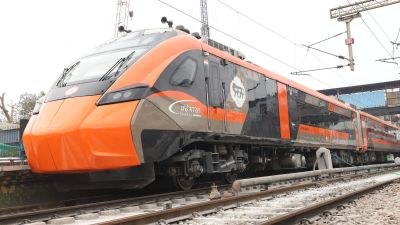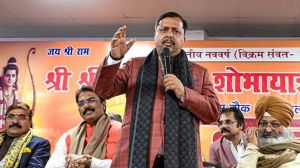Vote for politics
Pakistans people rejected the anti-politics plank to affirm faith in a deeper democracy
Pakistans people rejected the anti-politics plank to affirm faith in a deeper democracy
Nawaz Sharif may ultimately win enough of the 272 directly elected constituencies for his Pakistan Muslim League N to form a government on its own terms. The remaining 70 seats are decided by proportional representation,to effect reservations for women and non-Muslims. The PML has predictably held Punjab,while the PPP and MQM should form the government in Sindh. Imran Khans PTI,which captured the imagination of large urban tracts,ultimately did not make enough inroads to gain a say in government formation in Islamabad,but it has,for the first time,established a presence in the National Assembly beyond Khans own seat and,possibly influentially,in Khyber-Pakhtunkhwa. In the end,enough voters did not opt for the outlier he represented spurning the candidate on an anti-politics plank,Pakistanis stayed within the traditional political party system,a sure sign of deepening democracy. The credit goes to the people,who braved threats of violence and reversed traditional aloofness to come out and vote in larger numbers.
In fact,the results must surely invite introspection by not just Pakistans political parties,but also army GHQ and the higher judiciary. Pakistan has many times celebrated a return to democracy,but this is its first in which voters have gone to the polls as a routine rendezvous. However,the challenges that the new government faces will not allow it the luxury of a honeymoon period of extended celebration. At the height of summer,the cruelly long electricity outages frame a larger infrastructure crisis. The countrys finances need attention,and economic reform is essential. The security situation is dire,and it is likely to test Sharifs maturity in establishing a working relationship with the army. With American troops poised to exit Afghanistan in 2014,regional diplomacy too is bound to gather urgency. And Pakistans democratic credentials cannot be rightfully claimed till it addresses the rising sectarian strife and extremism.
Sharif has persuasively presented himself as a peacemaker,pointing to his previous stints in government to give confidence that he will pick up the threads of dialogue with India. Having been deposed by the army in 1999,and later shipped out into long exile,he appears to now be less impetuous in disregarding other centres of power. It is to be hoped he will work to carry them with him while responding to Indias concerns. India,for its part,should not be found wanting in reciprocating,or indeed,in taking the initiative.
- 01
- 02
- 03
- 04
- 05































